University of Bordeaux-Kyoto University Strategic Partnership Symposium 2024
(March 4–6, 2024, University of Bordeaux)
The University of Bordeaux-Kyoto University Strategic Partnership Symposium 2024 was collaboratively held at the University of Bordeaux on March 4–6, 2024. The two universities have actively promoted academic collaboration since the conclusion of an inter-university academic exchange agreement in 2014, and subsequently a strategic partnership agreement that was concluded under the direction of the two institutions’ presidents in October 2019. The Strategic Partnership aims to develop cross-disciplinary research collaboration, pioneer collaborative research in new academic fields, and promote researcher mobility.
The theme of the symposium was “Science in the Age of Challenges,” and in addition to the four research fields of health, energy, material science, and neuroscience, in which collaborative research is already underway, the three new fields of horticultural science, ecological science, and public health were also introduced. A total of approximately 80 researchers from the two institutions participated in seven sessions, each dedicated to one of the fields. The participants included many early-career researchers who are anticipated to play significant roles in addressing social issues in the future.
The first day of the symposium began with opening remarks from President Dean Lewis of the University of Bordeaux and President Nagahiro Minato of Kyoto University. In the keynote lectures that followed, Professor Yasunori Hayashi of KU’s Graduate School of Medicine spoke on “Sleep and Memory,” and Dr. Laurent Groc of the University of Bordeaux (Interdisciplinary Institute for Neuroscience [IINS]) spoke on “Decrypting Brain Cell Communication in Health and Disease at the Single Molecule Level.” In the roundtable discussion that followed, President Minato, President Lewis, and participants from CNRS, INRAE, the Embassy of Japan in France, and the Embassy of France in Tokyo formed a panel to discuss “International Collaboration between KU and UB, Japan and France.” The discussion covered the ways in which universities should respond to unforeseeable problems that may arise in the future and the cultivation of early-career researchers.
In the morning of the symposium’s second day, the participants of each parallel session presented their research and discussed their plans for future collaboration. In the afternoon, the topics discussed in each session, such as the prospects for future research collaboration, were presented in a plenary session. Following that, a second roundtable discussion was held with a panel of representatives from each parallel session (see below for details*). The topic was the symposium’s overall theme of “Science in the Age of Challenges.” Each representative responded to questions from the moderator, and opinions were exchanged on research priorities, etc.
*Parallel sessions (representative researchers):
・Health (Prof. Fumihiko Matsuda, Graduate School of Medicine)
・Energy (Prof. Takashi Sagawa, Graduate School of Energy Science)
・Material Science (Prof. Hiroshi Kageyama, Graduate School of Engineering)
・Neuroscience (Prof. Yasunori Hayashi, Graduate School of Medicine)
・Horticultural Science (Prof. Ryutaro Tao, Graduate School of Agriculture)
・Ecological Science (Associate Prof. Kohmei Kadowaki, The Hakubi Center for Advanced Research)
・Public Health (Prof. Taku Iwami, Graduate School of Medicine)
In the closing ceremony, Prof. Yasuyuki Kono, Kyoto University’s vice-president for international strategy, and Prof. Etienne Duguet, vice-president for innovation of the University of Bordeaux, provided a summary of the symposium’s achievements, which was followed by closing remarks from the two presidents.
On the third day, the participants visited the University of Bordeaux’s experimental forest on the site of the former Bordeaux Observatory at Floirac. The experimental forest is used to conduct research on the effects that changes in the natural environment have on forest vegetation. The visitors received an explanation of data collection techniques using sensors installed on trees and underground, before engaging in a lively question-and-answer session.
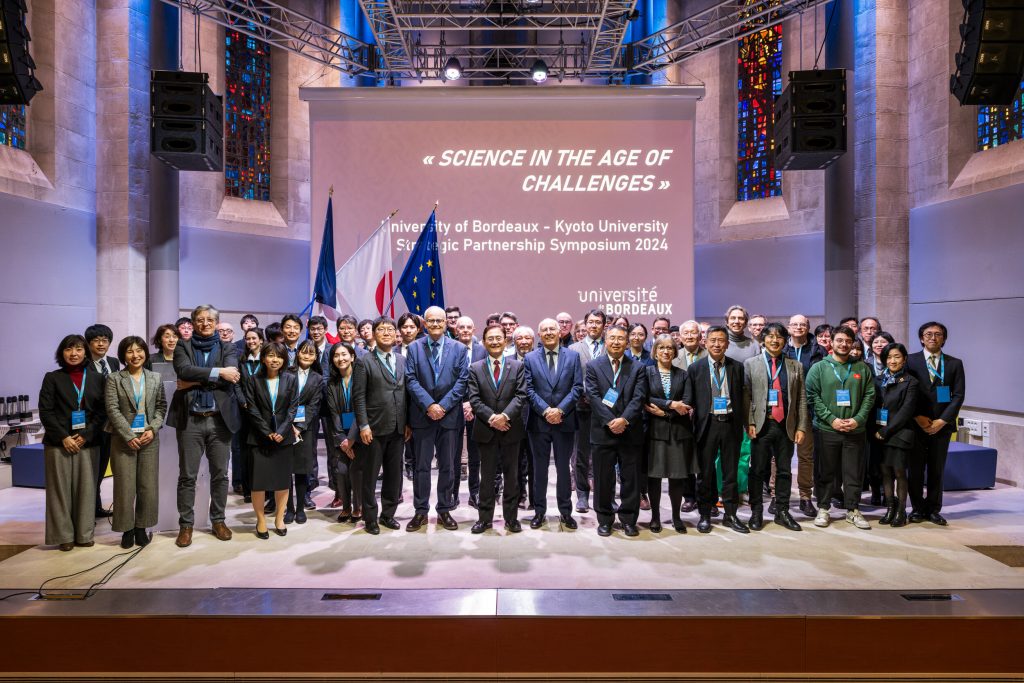
The symposium participants
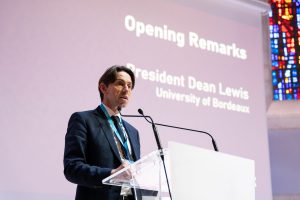
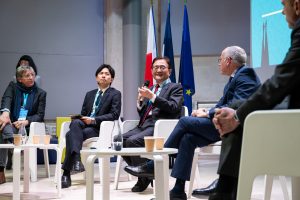
President Dean Lewis The first roundtable discussion session
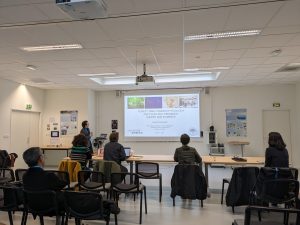
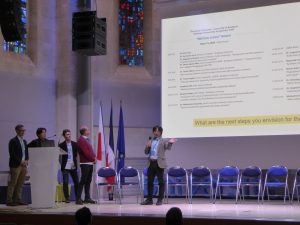
One of the symposium’s parallel sessions
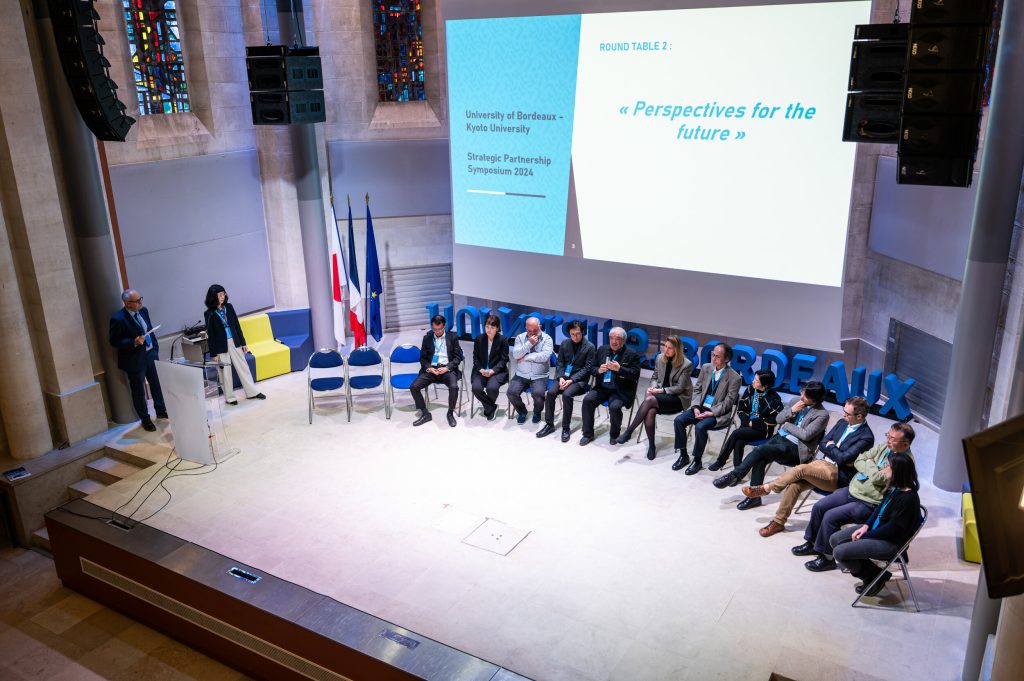
The second roundtable discussion session
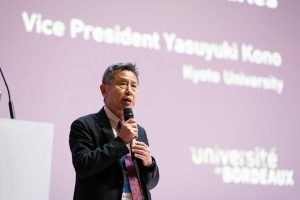
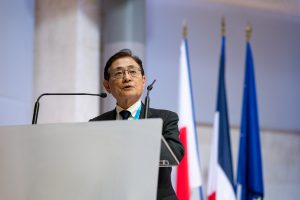
Vice-President Yasuyuki Kono President Nagahiro Minato
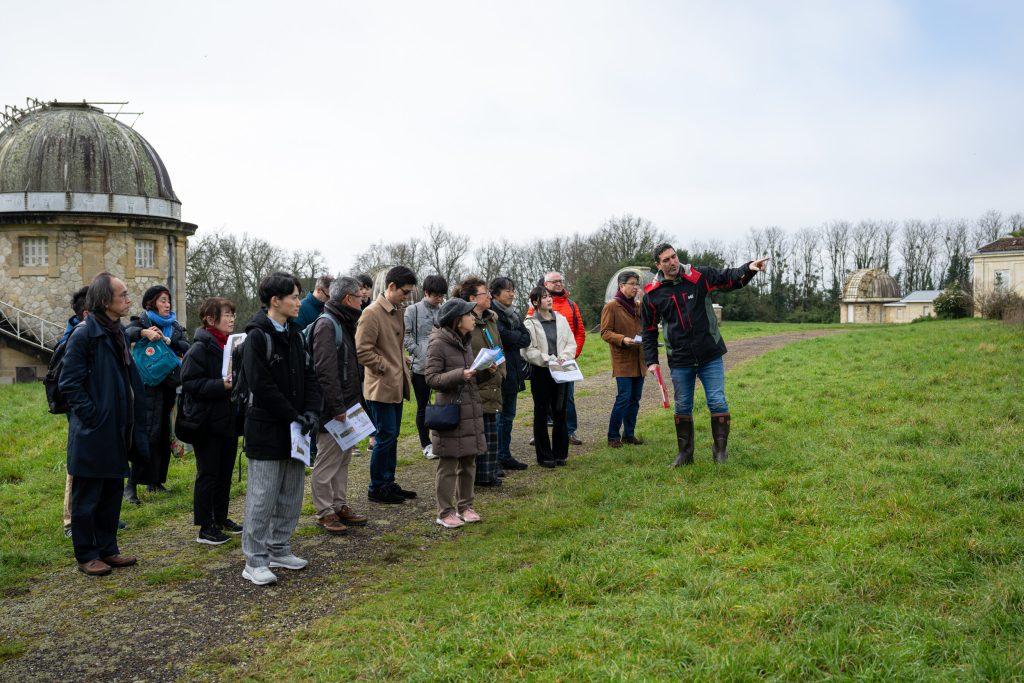
Visit to the University of Bordeaux’s experimental forest


